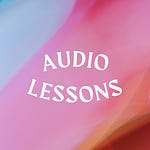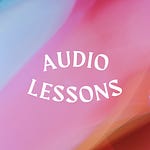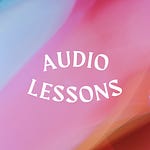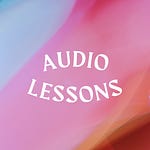Should you self or traditionally publish your book?
There are many merits to both self and traditional publishing—with no wrong answers. In your authorship journey, you will likely find yourself toggling between the two.
Now, experiencing both sides of the proverbial coin, I wanted to talk you through how I made the choice on my second kick at the publishing can.
Back up, what’s the difference?
Self-publishing is when you own the rights and you sell it yourself on a platform like Amazon.
Traditional publishing meanings having a literary agent and a book publishing house takes your book (since you sell the rights to them) and they give you editors to help polish it, help you market it, and they bear the cost of printing and distribution. They also set up the audio rights and foreign rights. Or, your agent does that. Virtually, the fancy version. In turn, you get paid a royalty. And, your agent takes a cut of that royalty in perpetuity.
Traditional publishing through a house is exceedingly hard to attain.
It’s like getting into a club you don’t really know how to get into, so you have to knock on a lot of doors and then proceed to find a window to climb through.
For my first book, I was a “debut author” and basically a nobody. (AKA: not a celebrity who could easily move 50,000 hardcover prints in a first edition print run). I got a true taste of how difficult the endeavor was. (200+ agents pitched, 2 agents offered representation, and I got 1 book deal). Then, I spent a year writing and editing it. And, another year marketing it.
2% of authors get traditionally published, which is a statistic from Words Rating in 2023.
P.S. You’re A Genius, was and still is, my prized jewel and favorite piece of work. And, I count my lucky stars every single day that it got turned into a real book and sells in stores all across Canada, the US, and even the UK.
Self-publishing is far easier, but with downsides.
Which, I’ll educate on in this episode. Also, these are downsides to me— which might be pros for you! As shared prior, there are no wrong answers.
In this episode you’ll learn:
How I shifted genres from a business, non-fiction title to a beach-read, rom-com fiction novel.
The pros and cons of self and traditional publishing.
How I chose to self-publish, even though it wasn’t my first choice.
How the book idea came to me for Love Letters I Can’t Send.
How I started writing fiction with no prior fiction experience.
Mentions:
This was originally a podcast episode I released in February 2025, so I’ve linked below the mentions.
The “Getting Your Creative Project Done” workshop was recorded and uploaded here on Substack.
I have a course on how to get a literary agent, write a book proposal, and get a traditional book publishing deal if you need advice. I share my exact query letter and manuscript too.
This article shared how I pivoted my career.
The money question was from George Kinder and his work around financial life planning. Basically, the concept being devoting your money, attention, time, and resources to doing the things that deeply matter to you. And, if you missed your chance to do them, you’d regret later in life. Which, is how I felt about this novel collecting dust as a big Word document and never sharing it.
All my best,
Kelly











